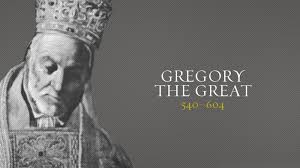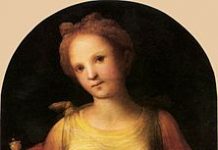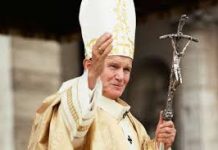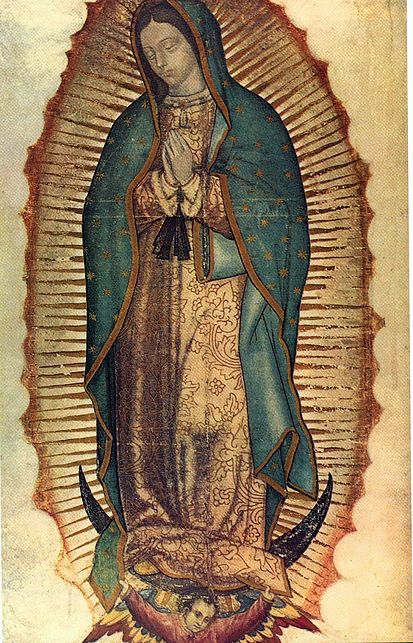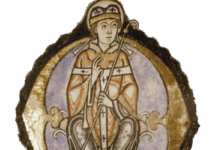One of the great joys of history is reminiscing about the past, giving hope for the present; for history is ‘eschatological’, moving towards a final purpose. Hence, we Catholics should never lose hope, and this virtue is easier to cultivate and foster in our souls if, as Christ said, we could but read the signs of the times…
Saint Gregory, pope from 590 to 604 A.D. was one of the more hopeful figures in our panoply of saints. Raised in an aristocratic and wealthy family, he was the son of a Roman senator, even if that office had declined somewhat from Rome’s glory days, in a city that had gone largely to ruin under barbarian raids, with the capital of the empire moved long ago to Constantinople.
Gregory dedicated his resources, along with his immense talents, to the service of the people and to God. Appointed prefect of the city at 33 years old, doing much to bring order from the chaos into which the once-glorious ‘eternal city’ had fallen (and you thought clearing out your basement was difficult), Gregory soon turned towards a more supernatural life, founding a Benedictine monastery on his family’s property on the Coelian hill. His gifts were soon recognized by the people (election by cardinals would not be the norm until the 12th century), was elected supreme pontiff on this day in 590.
Gregory, like all saints, was industrious, using the time he had well: In the absence of many competent administrators, he had to govern not only the Church, but Rome also, governing the city better than his secular predecessors had done (and thus involving future Popes in temporal governance, which would create many issues in the centuries to come, especially for those of lesser character and virtue than Gregory).
He also organized the mission to the Anglo-Saxons (as I wrote recently in my reflections on Canterbury and Augustine), converting Britain to Catholicism, along with the barbarians in and beyond the Italian peninsula, Franks, the Lombards, the Visigoths, who had until that point been immersed in the pernicious heresy of Arianism. Thus, he saved most of Europe, making the continent, from France to Germany, Catholic, at least up until the schisms fostered by Luther, Calvin and the Protestant revolt.
Gregory’s name is also renowned for his liturgical work, ordering the Mass and the other sacraments according to norms binding upon the whole Church; he also did much to organize the ancient chants, which precede him, but which go by his name, and, alas, are now far too neglected (what good would come from regular singing of that chant again at the Novus Ordo Mass, I wonder?)
The great Pope also wrote many profound works, not least his Dialogues (including an invaluable near-contemporaneous life of Saint Benedict), his Pastoral Rule, Commentary on Job, and numerous homilies and letters.
A model for Popes through the ages, and we should be grateful indeed for the numerous saintly men who have graced the office of Peter, a burden so great that one needs sanctity, and a whole lot of grace, to carry it.
Hence, continue to pray for the Holy Father; whatever the truth behind the unfolding mess (and I will write more on that soon). May that same light of truth shine through the present darkness in the Church, as it did during those tumultuous days of long ago, for God will never abandon His bride.
Saint Gregory the Great, ora pro nobis!

